第87章 APPENDIX.(3)
XXVII. The advantage which we derive from things external to us, besides the experience and knowledge which we acquire from observing them, and from recombining their elements in different forms, is principally the preservation of the body; from this point of view, those things are most useful which can so feed and nourish the body, that all its parts may rightly fulfil their functions. For, in proportion as the body is capable of being affected in a greater variety of ways, and of affecting external bodies in a great number of ways, so much the more is the mind capable of thinking (IV:xxxviii., IV:xxxix.). But there seem to be very few things of this kind in nature; wherefore for the due nourishment of the body we must use many foods of diverse nature. For the human body is composed of very many parts of different nature, which stand in continual need of varied nourishment, so that the whole body may be equally capable of doing everything that can follow from its own nature, and consequently that the mind also may be equally capable of forming many perceptions.
XXVIII. Now for providing these nourishments the strength of each individual would hardly suffice, if men did not lend one another mutual aid. But money has furnished us with a token for everything: hence it is with the notion of money, that the mind of the multitude is chiefly engrossed: nay, it can hardly conceive any kind of pleasure, which is not accompanied with the idea of money as cause.
XXIX. This result is the fault only of those, who seek money, not from poverty or to supply their necessary, wants, but because they, have learned the arts of gain, wherewith they bring themselves to great splendour. Certainly they nourish their bodies, according to custom, but scantily, believing that they lose as much of their wealth as they spend on the preservation of their body. But they who know the true use of money, and who fix the measure of wealth solely with regard to their actual needs, live content with little.
XXX. As, therefore, those things are good which assist the various parts of the body, and enable them to perform their functions; and as pleasure consists in an increase of, or aid to, man's power, in so far as he is composed of mind and body; it follows that all those things which bring pleasure are good. But seeing that things do not work with the object of giving us pleasure, and that their power of action is not tempered to suit our advantage, and, lastly, that pleasure is generally referred to one part of the body more than to the other parts; therefore most emotions of pleasure (unless reason and watchfulness be at hand), and consequently the desires arising therefrom, may become excessive. Moreover we may add that emotion leads us to pay most regard to what is agreeable in the present, nor can we estimate what is future with emotions equally vivid. (IV:xliv.Note, and IV:lx.Note.)
XXXI. Superstition, on the other hand, seems to account as good all that brings pain, and as bad all that brings pleasure. However, as we said above (IV:xlv.Note), none but the envious take delight in my infirmity and trouble. For the greater the pleasure whereby we are affected, the greater is the perfection whereto we pass, and consequently the more do we partake of the divine nature: no pleasure can ever be evil, which is regulated by a true regard for our advantage. But contrariwise he, who is led by fear and does good only to avoid evil, is not guided by reason.
Ap.XXXII. (1) But human power is extremely limited, and is infinitely surpassed by the power of external causes; we have not, therefore, an absolute power of shaping to our use those things which are without us.
Nevertheless, we shall bear with an equal mind all that happens to us in contravention to the claims of our own advantage, so long as we are conscious, that we have done our duty, and that the power which we possess is not sufficient to enable us to protect ourselves completely; remembering that we are a part of universal nature, and that we follow her order. If we have a clear and distinct understanding of this, that part of our nature which is defined by intelligence, in other words the better part of ourselves, will assuredly acquiesce in what befalls us, and in such acquiescence will endeavour to persist. For, in so far as we are intelligent beings, we cannot desire anything save that which is necessary, nor yield absolute acquiescence to anything, save to that which is true: wherefore, in so far as we have a right understanding of these things, the endeavour of the better part of ourselves is in harmony with the order of nature as a whole.